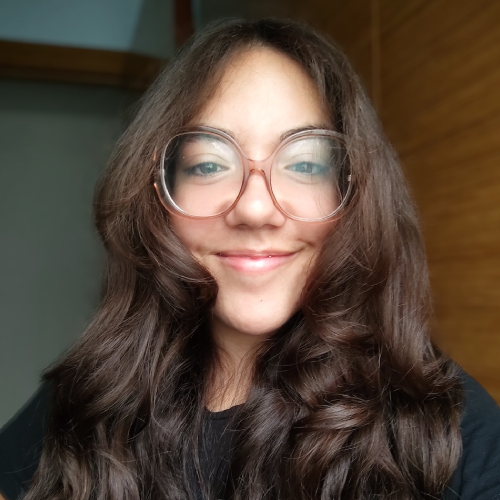

Spanish secondary education teacher Anais Ramos now works in an English Academy but earlier this year she participated in Laura Angelini’s Virtual Exchange entitled “Simulation in the Master of Education in Secondary Teaching” hosted on UNICollaboration’s Moodle platform.
Anais says she didn’t really know what to expect, despite Laura’s explanation and talks.
“First of all, I was so surprised that I was connecting to people from remote places’, she says, ‘from Ukraine and Algeria, as well as Poland and Spain. The first session was really interesting as it was dedicated to getting-to-know each other. We chatted a lot and this was really helpful as it prepared us for being able to work together on the project.
Playing Headteacher
“My teacher designated me the role of ‘headteacher’ in the simulation’, she continues, ‘and this was a new concept for me, as I had no idea what ‘simulation’ meant really. Of course, I had to think about leadership and make decisions. I’ve never done this before so was challenging.
“The experience took me out of my comfort zone, but I didn’t panic and tried to do my best and think about what a head teacher does…..I tried to tell everyone about meetings introducing myself and setting up times for the meetings. It was up to me to choose the topics for our simulation and I tried to maintain my role throughout.
There were challenges, but on the whole, the virtual exchange went well I think. And I was happy with my performance when the virtual exchange came to an end.
Skills development in VE
“Leadership skills was the main aspect I developed, explains Anais, ‘together with problem solving and how to deal with issues that come up. We had some difficulties during our VE collaboration and they included poor internet connections, absenteeism, less confident people who need to be encouraged and made to feel comfortable. And of course, disagreements and how to deal with these.”
Anais says that having cultural awareness with regard to other nationalities was really important. She says, ‘the Ukrainian girl was in a terrible situation and so it’s about being aware and respectful of everyone’s situations.
“You need to be aware that everyone depends on their cultural background. It’s important to understand that others have other perspectives. So, what is obvious for some, may not be for others. Also regarding the way we communicate: in general, Spanish people are more extrovert, whereas others are more shy. This means you need to create a safe space for everyone to enable them to feel comfortable. I found this was a key aspect, explains Anais.
Challenges when participating in a virtual exchange
Anais says that connectivity was one fundamental point, together with some students failing to show up to the session and not maintaining their designated roles. “I tried to maintain my role throughout, but not all the group did this. They became themselves again and did not necessarily keep up with the role…I tried to encourage them to do this as it was an important aspect of our project.
“In the end, we managed and made our decisions anyway. But if I do another VE like this, I would like to try to insist on this a bit more.”
She also felt a little disappointed at times because others were not so prepared for the sessions, and didn’t always have a lot to say. ‘Perhaps they were more shy and struggled with things to say.
“However, it was a great experience overall. I could do it all again for sure.
“I learned about simulation and it opened a window for me as it was a new and interesting experience. I think others should try doing a virtual exchange because it can help you in the future. Maybe I won’t be so nervous if I have to lead something and discuss things that really matter. It is good to talk and find out about different perspectives so in the future, this was a small preparation for what is coming.”
Advice to others about virtual exchange
“Go for it, she says, ‘I would do it all again and I would try and do better next time. I received really valuable feedback from the teachers and this is great. It prepares you for future realities. During the virtual exchange, I think you just need to read and prepare. Everyone helps each other, I found. The teachers are always there, Laura was always on hand for anything. I really recommend it.”
